
Career
The Best Psychology Books For The Workplace
There are so many great psychology books. Which have you read?
Posted October 31, 2012
People often ask me what I'm reading and what they should be reading. Here's a list of my favorite psychology books that are especially good for the workplace and for business.
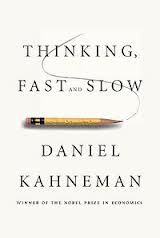
Thinking Fast and Slow by Daniel Kahneman, 2011 – If you want to understand how people think and how and why they react, then this is a must read. Daniel Kahneman is a Nobel prize winner in Economics, but this book is all about how people think and react. It's very well written, but I will warn you, it's not an easy read. Plan to spend time reading this one. But it will be worth it for the understanding you get into why we do the things we do.

Redirect by Timothy Wilson, 2011 – If you want to know how to make permanent and lasting change in your behavior, or the behavior of someone you know, then this is the book to read. Wilson covers the recent and often very surprising research on interventions and therapies that result in people actually changing. Permanent behavior change is hard to come by. This book tells you what does and doesn't work based on research.
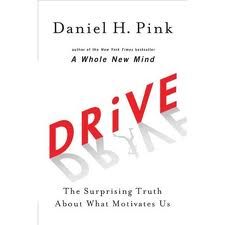
Drive by Daniel Pink, 2011 – What really motivates people? This book covers the research on human motivation in the last few years. It's well written, and an easy read, and will explode some long-standing beliefs.
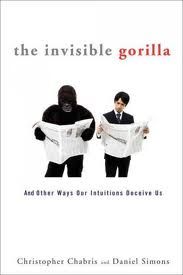
The Invisible Gorilla by Chabris and Simon, 2011 – Chabris and Simon explain their research that shows how what we think we are seeing and experiencing is not really what's out there. A fun book about how we deceive ourselves.
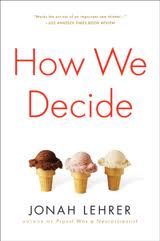
How We Decide by Jonah Lehrer, 2009 – There's been a big controversy lately about Jonah Lehrer. But that surrounds his later book, Imagine. No matter what people are saying and writing about Jonah Lehrer, How We Decide</em> is a great book. It's my favorite book on the topic of decision-making. It came out after I wrote my book Neuro Web Design: What makes them click?, or I would have quoted this book many times in my book. It’s a small book, and has lots of research in it, but it is quite readable. Highly recommended if you want to understand the how and why of human decision-making.
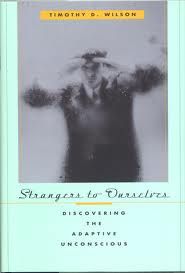
Strangers to Ourselves: The Adaptive Unconscious by Timothy Wilson, 2004 – This is the second book by Timothy Wilson on my list, and it's the book that actually got me started seriously on the topic of the unconscious. I had read Blink (Malcolm Gladwell) and although that was an interesting book, I wanted more depth and detail. Gladwell referenced Wilson’s book so I started reading it and light bulbs went off for me. This one is a bit more academic and psychological, especially the first few chapters, but all in all, a great book with lots of interesting insights and strong research.
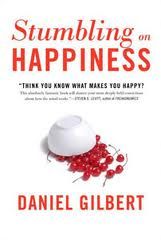
Stumbling on Happiness by Dan Gilbert, 2007 – This is a fun read. I don’t think it’s really about Happiness, so I don’t totally understand the title. To me it’s mainly about memory of the past, and anticipation about the future, and the research on how accurate or inaccurate we are about both past and future. It’s full of fascinating research, but is written in a very readable way.
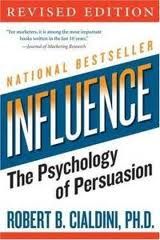
Influence: The Psychology of Persuasion, by Robert Cialdini, 2006 – This is a newer version of the original book that came out several years ago. This book is the “granddaddy” of all the other books on the topic of persuasion. A very worthwhile read. Interesting too, because at the time he originally wrote this book each chapter had a section on how to RESIST the persuasive techniques. He wasn’t a proponent of using them; he wanted you to know about them so you wouldn’t fall prey. He did a turn-around on that mindset for his later work.
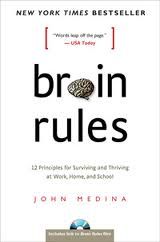
Brain Rules: 12 Principles For Surviving and Thriving at Work, Home, and School by John Medina, 2009 – This is a somewhat misleading book. From the way it’s described you would think it’s a very practical book, for everyone, not academic or research oriented. But actually it’s quite a treasure trove of research, which I think is a good thing. He has this weird section at the end of each chapter where he tells you how to apply the principles in that chapter to your everyday life. I think those sections are the weakest, actually. But the material in the body of each chapter is solid, well referenced and well written. If you want a basic book that explains some basic brain functioning I would definitely read this book.
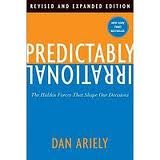
Predictably Irrational by Dan Ariely, 2008. There is some great content in this book, but I have a basic disagreement with the premise. If you have read my blog posts or books you know that I believe that it is not that our decision-making or mental processing is “irrational”. It’s unconscious, but that doesn't mean irrational or bad. Our unconscious mental processing works most of the time. Ariely’s view is that we are irrational and irrational means bad, and that we should learn how to counteract our mental processing. I don’t agree. But the research in the book is still good (it's his interpretations and recommendations I take issue with).
And please forgive me if I add an extra book -- my latest:
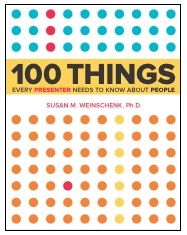
100 Things Every Presenter Needs To Know About People
Do you agree with my list? Do you have some favorites that I’ve failed to mention?

